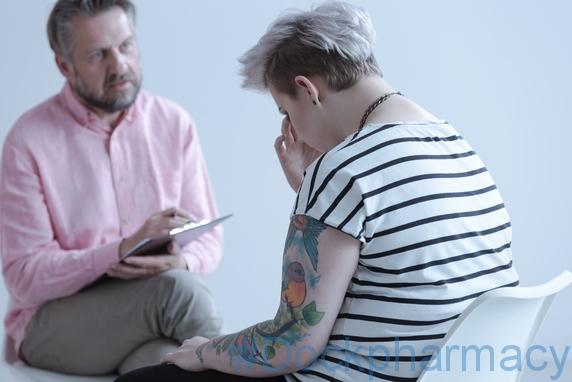.png)

Gad ( Generalised Anxiety Disorder ) is a long-term condition that causes you to feel anxious about a wide range of situation and issues, rather than one specific event.
it is thought to affect 5% of the UK population and is more common in people aged between 35 and 59.
If you have GAD you will feel anxious most days and often struggle to remember the last time you felt relaxed. You will have a variety of symptoms which may include feeling worried, a sense of dread, having trouble concentrating and /or sleeping, dizziness or heart palpitations. If these symptoms are affecting your daily life or causing you distress you should arrange a visit to your GP.
The exact cause of GAD isn’t fully understood but is likely to be a combination of several factors. Research has suggested this may include:
But many people develop GAD for no apparent reason.
At first, your GP may suggest trying a self-help course for a month or two to see if you can learn to cope with your anxiety. This usually involves working from a book or computer programme on your own with occasional contact with your GP.
You may prefer to join a group with similar problems to meet with a therapist every week to learn ways to tackle your anxiety. If these initial treatments don’t work, you may be offered a more intense psychological treatment or medication.
CBT is one of the most effective treatments for GAD. CBT helps you to understand how your problems, thoughts, feeling, and behavior affects each other. CBT usually involves meeting with a specially trained therapist for a one-hour session every week for three to four months.
This is an alternate type of psychological treatment that can be as effective as CBT in treating GAD. Mindfulness works by focusing your awareness on the present moment and by acknowledging and accepting certain feelings. Being mindful can reduce anxiety caused by the fear of actual situations or sensation or anticipated ones. It helps to counter the sense of tunnel vision that may develop during anxiety.
Applied relaxation focuses on relaxing your muscles in a particular way during the situations that usually cause anxiety. This technique needs to be taught by a trained therapist and usually means meeting with a therapist for a one hour season every week for three to four months.
If you are still feeling anxious after trying all these treatments, you may want to discuss with your GP whether you should be referred to a mental health specialist.
